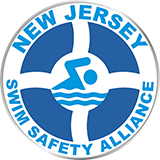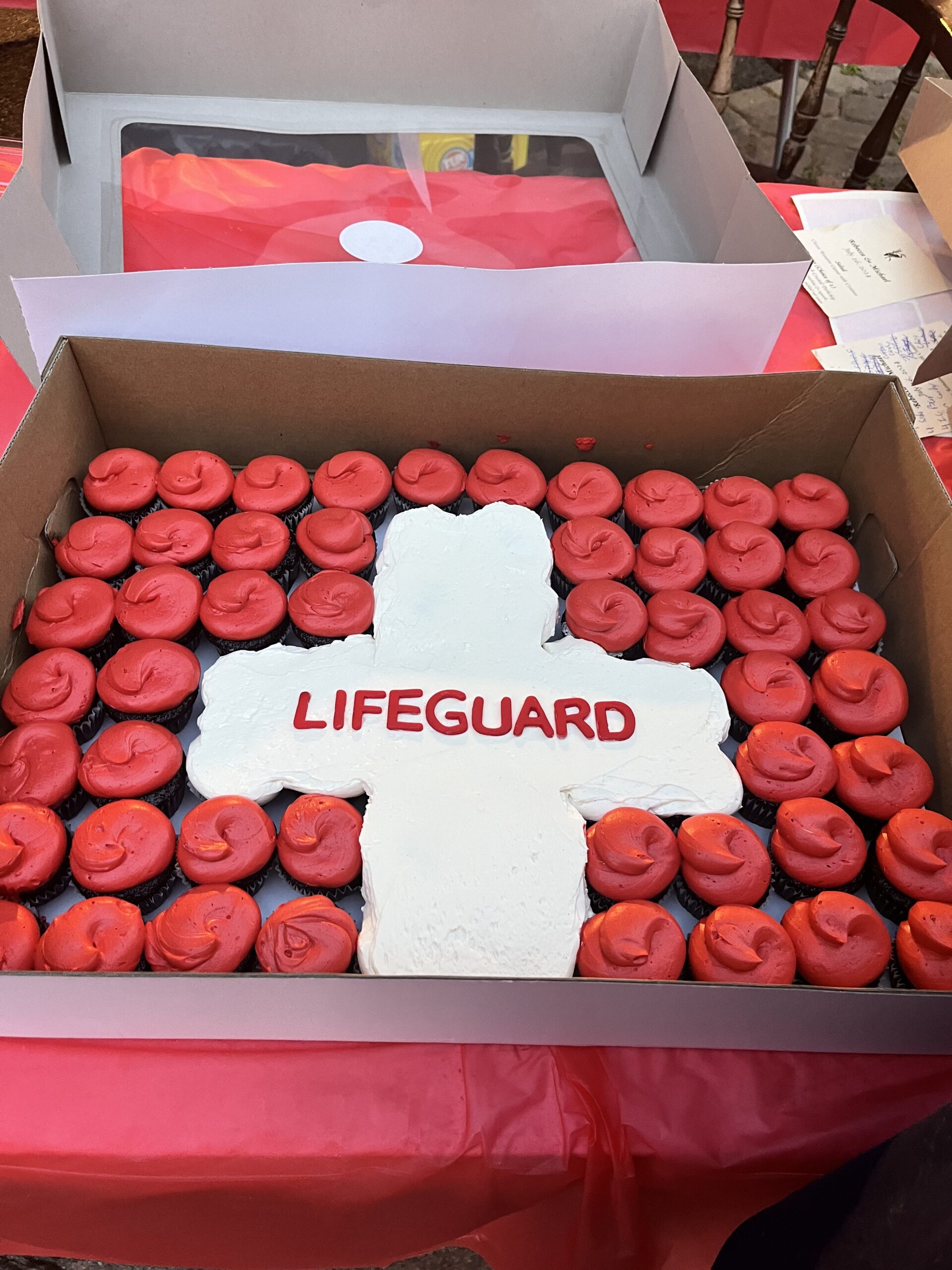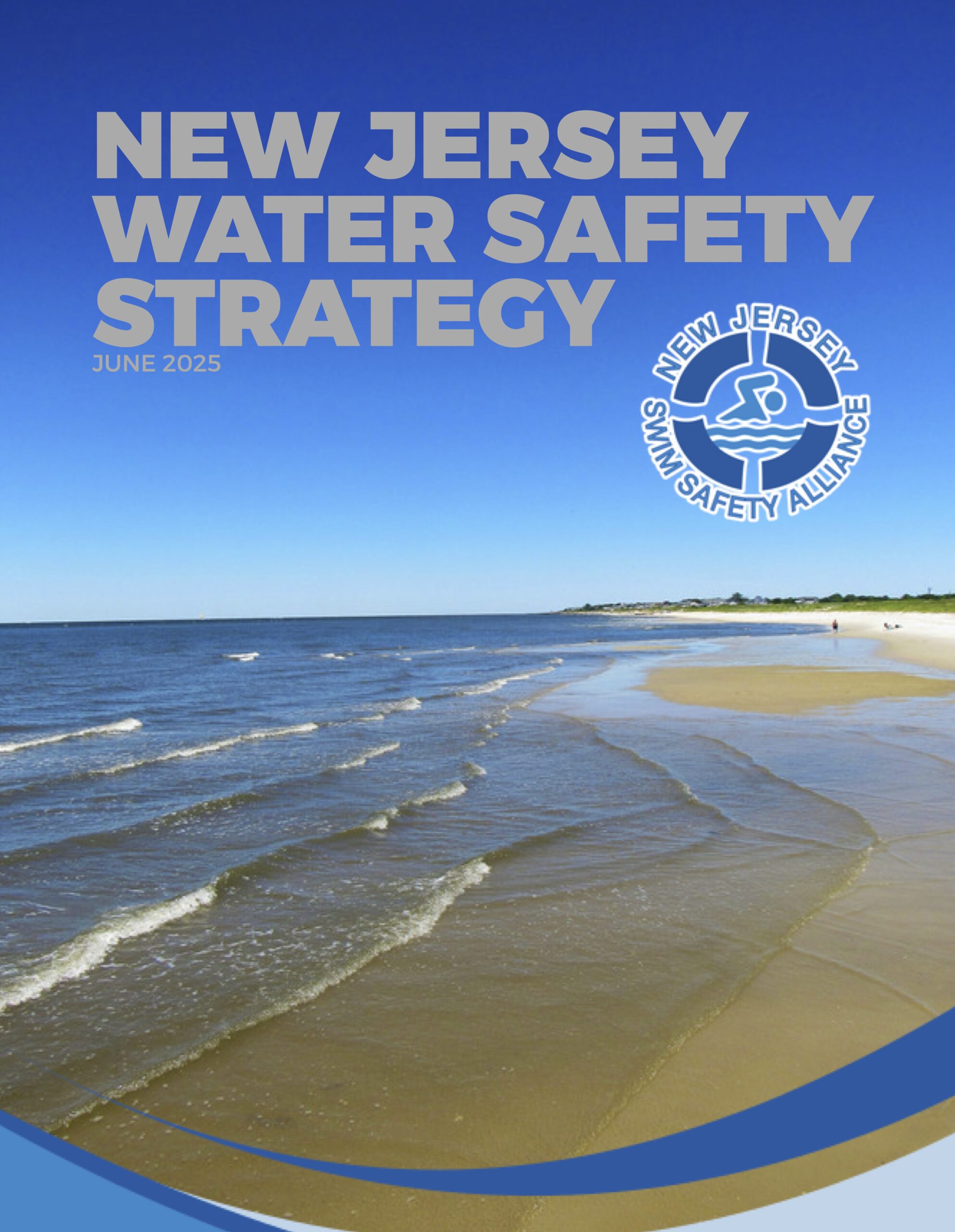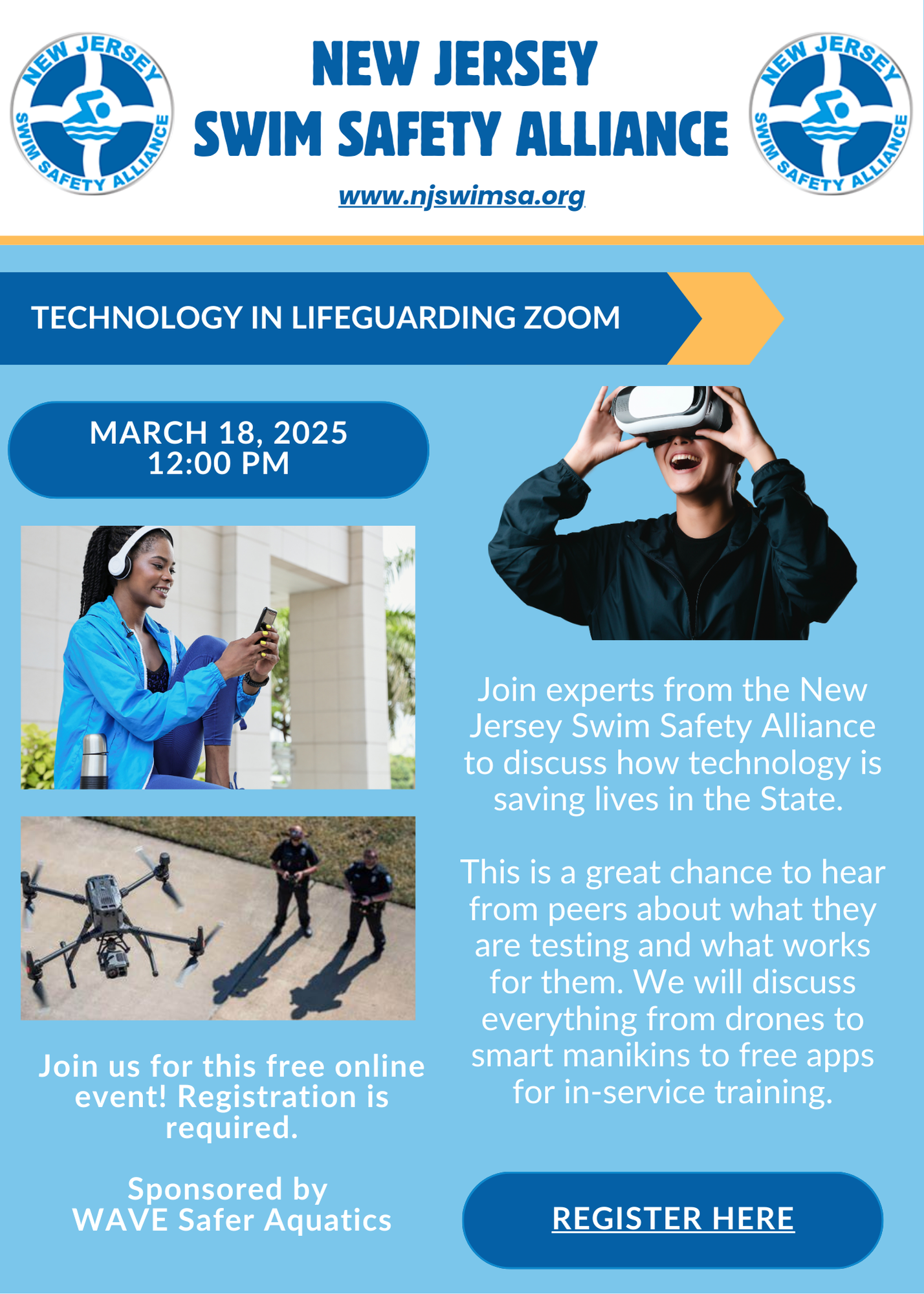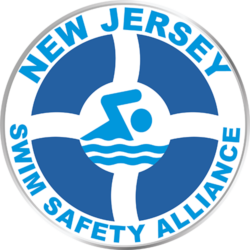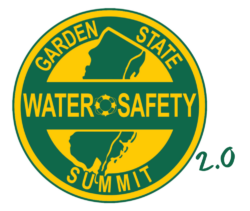New Jersey Aquatic Safety Coalition
Do You Consider Your Lifeguards Athletes?
Many of our lifeguards, aquatic facility supervisors, and managers have been part of an athletic team at some point in their lives. Ask yourself or ask them: When you were on an athletic team, how often did you practice? The likely answer would be almost daily. Lifeguards are also part of an athletic team. Training and practicing skills should be a regular part of their daily routine while on duty, as they are training to save lives. Lifeguard competitions embody this spirit. They promote teamwork, enthusiasm, motivation, and the necessary skills lifeguards require to make their jobs both rewarding and enjoyable. Competitions measure individuals and teams according to the lifesaving skills and standards set by any lifeguarding program, whether it’s Red Cross, StarGuard, YMCA, or any other certifying agency.
Lifeguard Competitions
Lifeguard competitions showcase the abilities of your guards. Experiential data shows that participation in these competitions enhances lifeguards’ skill performance, motivation, and teamwork while identifying potential leaders for your agency.
Entry-level lifeguards often do not view themselves as professional lifeguards. This perception may stem from factors like age, wages, hours, or work conditions. We’ve found that lifeguard competitions can address these perceptions and help with staff retention and recruitment. By fostering motivation and team building through training and competition, we can develop not only lifesaving skills but also a more positive attitude among employees.
Our Experience
We have seen the impact of this approach in Sussex County. For over ten years, Sussex County has hosted an annual Lifeguard Competition for all lakes and aquatic facilities in the area. This event has become a spirited, friendly competition that facilitates the exchange of training tips, ideas, and camaraderie. Participants realized they needed to practice to maintain their skills, and felt the competition would significantly improve their performance and motivation.
During each competition, our judges—who are Red Cross Lifeguard Instructors and Trainers—review, critique, and offer training tips to the participants afterward to help refine their skills. This feedback is evident when participants return the following year with improved coordination and ability. The audience has grown over the years, with teams bringing cheering sections complete with posters and banners. It truly becomes an athletic event, with spectators even cheering for the “victim” manikin.
A memorable example of teamwork and camaraderie occurred a few years ago during a submerged victim/team scenario event. Four separate teams from different lakes were competing. All four teams entered the water to recover their submerged “victim manikin.” Three teams quickly retrieved and brought their manikins to shore, where their teammates prepared to perform high-quality CPR. One team struggled to find their manikin underwater. After a few moments, members of the other three teams turned around to assist with the deep-water search. Working together, participants found the remaining manikin in less than a minute. The willingness of the other teams to forfeit their clear advantage in the competition highlighted the true spirit of the event. Ultimately, “We Train to Save Lives, Not to Compete!”
Tips for Starting a Local Competition
Each competition can be tailored to various aquatic facilities to meet the needs of your community. Pools, lakes, and other waterfronts are all excellent venues. We periodically change the events to challenge different skills.
We plan our competition to break even, with the principal expenses being medals and T-shirts. We award team medals for finishing first, second, and third in each event. A “Traveling” Trophy is awarded each year to the overall champion. Food and other giveaways are typically donated by local businesses, the facilities themselves, and vendors. The competition has also proven beneficial for public relations and even recruitment from our Junior Lifeguard program.
This year, Lake Mohawk Country Club, in partnership with the New Jersey Aquatic Safety Coalition, will host the 12th Annual Sussex County (North Jersey) Lifeguard competition on AUGUST 4, 2025. The competition will feature teams of four to seven members competing in five different events. All teams must be coed, and all team members must be employees of the same aquatic facility. Green Pond lifeguards, the returning 2024 champions, will be bringing the trophy they received last year at Culver’s Lake.
To participate in this year’s competition, or get some guidance on setting up your own Lifeguard Competition, please feel free to contact Rich Carlson at [email protected].
Lorem ipsum dolor sit amet, consectetur adipiscing elit. Ut elit tellus, luctus nec ullamcorper mattis, pulvinar dapibus leo.
